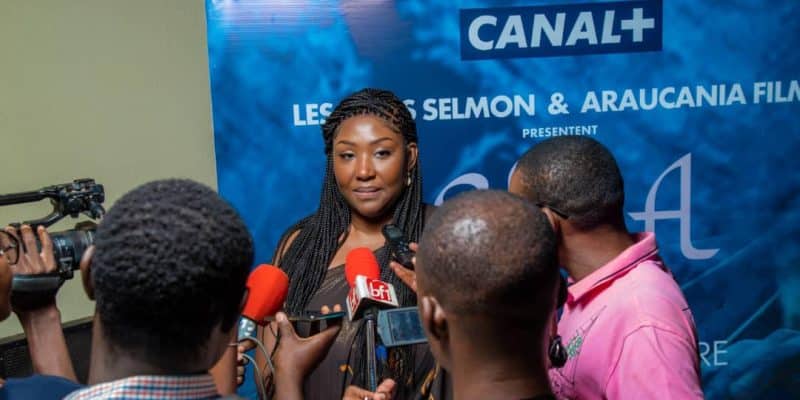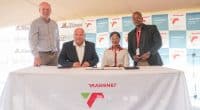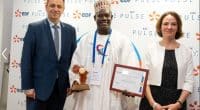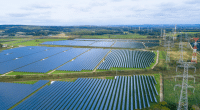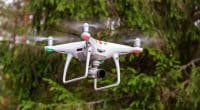The international non-governmental organisation WaterAid has awarded a special prize to the young Burkinabe filmmaker Apolline Traoré for her film "Sira". The feature film, presented at the Pan-African Film and Television Festival of Ouagadougou (FESPACO) in Burkina Faso, highlights the impacts of climate change on women and girls, particularly in terms of access to water, sanitation and hygiene.
Women and girls are the people most affected by climate change today. Apolline Traoré, a young filmmaker from Burkina Faso, demonstrated this in her film “Sira”, which received the special prize of the international non-governmental organisation WaterAid on 3 March 2023. The prize, which is awarded for the best work dealing with issues related to drinking water, hygiene, sanitation and climate, comes with an envelope of 5 million CFA francs (7,622 euros).
The film, produced in 2022 in Burkina Faso, Senegal, France and Germany, was awarded the Etalon de Yennenga, the grand prize of the Pan-African Film and Television Festival of Ouagadougou (FESPACO), where it also received the “Silver Etalon”. The feature film addresses the problem of access to drinking water, sanitation and hygiene for women and girls in Burkina Faso, in a context marked by climate change. Added to this are the abuses suffered by girls kidnapped by terrorists while fetching water.
Why this vulnerability?
In Burkina Faso, as in many African countries, women make up a significant proportion of poor communities who depend on local natural resources for their livelihoods, particularly in rural areas where they bear the burden of family responsibilities. These include the provision of water for drinking and sanitation and menstrual hygiene as addressed in the film “Sira”, the collection of fuel for cooking and heating, and food security.
“The heroine Sira went in search of water in the desert. When she found water, this resource gave her a new lease on life. I liked the answer she gave to the terrorist who asked her why she was there, in a dangerous place. She replied, “At least here there is water”. This shows the situation of women in the Sahel who are forced to go far to fetch water, braving death at the same time,” explains Celestin Poya, WaterAid’s Director of Advocacy and Communications.
Currently, drinking water coverage in Burkina Faso is 76% according to the Sahel Alliance. By 2021, the rate of access to sanitation was 20% in rural areas and 36% in urban areas, according to the Burkinabe authorities.
Read also –
The vulnerability of women and girls in Burkina Faso is also the result of economic and cultural factors. “In many societies, cultural norms and family responsibilities prevent women from migrating, seeking refuge in other places or seeking employment when a disaster strikes. This increases the burden on women,” says the United Nations (UN).
Improving women’s adaptation to climate change…
In extreme weather conditions, such as droughts and floods, women tend to work more to secure their livelihoods, leaving less time for training and education, skills development or income generation. To improve women’s adaptive capacities in Burkina Faso and throughout Africa, efforts should be made to integrate gender into national policies and strategies as well as into projects related to sustainable development and climate change.
The UN also recommends encouraging gender-sensitive investments in adaptation and mitigation programmes, technology transfer and capacity building, including in water collection and storage, food preservation and rationing, and natural resource management.
Inès Magoum

